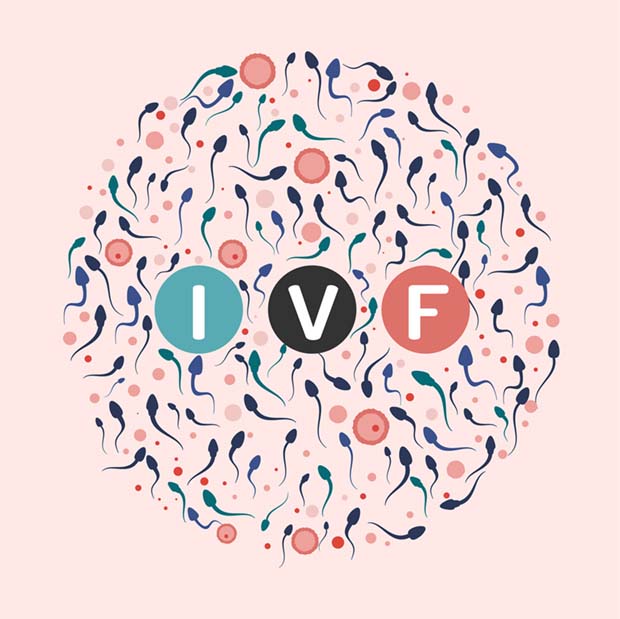All Categories
Featured
Table of Contents
How Much Does Fertility Facility New Mexico Service Cost?
Many individuals require fertility assistance. This includes men and ladies with infertility, numerous LGBTQ individuals, and single people who desire to raise kids. An estimated 10% of women report that they or their partners have ever gotten medical help to conceive. Despite a requirement for fertility services, fertility care in the U.S.

Usually, fertility services are not covered by public or private insurance providers. Fifteen states need some private insurance companies to cover some fertility treatment, but significant gaps in coverage stay. Only one state Medicaid program covers any fertility treatment, and no Medicaid program covers synthetic insemination or in-vitro fertilization.

This implies that in the absence of insurance protection, fertility care is out of grab many individuals. Less Black and Hispanic ladies report ever having used medical services to end up being pregnant than White ladies. This is an outcome of lots of elements, consisting of lower earnings typically among Black and Hispanic ladies as well as barriers and misconceptions that may deter women from seeking help with fertility.
What Do Infertility Center New Mexico Services Include?
Transgender individuals undergoing gender-affirming care might also not meet criteria for "iatrogenic infertility" that would qualify them for covered fertility conservation. Lots of individuals require fertility help to have kids. This might either be due to a diagnosis of infertility, or due to the fact that they are in a same-sex relationship or single and desire children.

Fertility treatments are pricey and typically are not covered by insurance. While some personal insurance coverage strategies cover diagnostic services, there is really little protection for treatment services such as IUI and IVF, which are more pricey. The majority of individuals who use fertility services need to pay of pocket, with expenses typically reaching countless dollars.
About 25% of the time, infertility is brought on by more than one aspect, and in about 10% of cases infertility is unexplained. Infertility quotes, nevertheless do not represent LGBTQ or single individuals who might also need fertility help for household structure. Therefore, there are diverse factors that might prompt individuals to look for fertility care. Dumpsters Plymouth MA.
Who Is The Best Ivf Fertility Clinic New Mexico Company?
35.3588906898588,-106.342370040468Patient Information Series. 2017 Our analysis of the 2015-2017 National Study of Household Growth (NSFG) discovers that 10% of women ages 18-49 state they or their partner have ever talked with a medical professional about methods to help them end up being pregnant (data disappointed).3 Amongst females ages 18-49, the most typically reported service is fertility advice ().
Lots of clients lack access to fertility services, largely due to its high expense and minimal protection by private insurance coverage and Medicaid. As a result, lots of people who use fertility services should pay of pocket, even if they are otherwise guaranteed. Out of pocket costs differ commonly depending upon the patient, state of house, service provider and insurance coverage plan (construction dumpster rental).
Figure 3: Fertility Treatments Usually Cost Patients Thousands of Dollars Insurance coverage of fertility services varies by the state in which the individual lives and, for individuals with employer-sponsored insurance coverage, the size of their company. Numerous fertility treatments are not considered "medically required" by insurer, so they are not generally covered by private insurance plans or Medicaid programs.
Who Is The Best Fertility Facility Albuquerque Nm Service?
g., screening) are more most likely to be covered than others (e. g., IVF). A handful of states need protection of fertility services for some fully-insured personal strategies, which are regulated by the state. These requirements, however, do not use to health plans that are administered and moneyed directly by employers (self-funded strategies) which cover 6 in ten (61%) employees with employer-sponsored medical insurance.
Two states (CA and TX7) need group health prepares to offer at least one policy with infertility protection (a "required to offer"), however companies are not required to select these strategies. Figure 4: Many States Do Not Need Private Insurers to Supply Infertility Benefits However, in states with "mandate to cover" laws, these just apply to particular insurers, for particular treatment services and for certain clients, and in some states have financial caps on expenses they should cover ().
In other states, almost all insurance providers and HMOs are consisted of in the required (garbage dumpster rental). Lots of states supply exemptions for little companies (
Latest Posts
Who Is The Best Infertility Clinic New Mexico Service?
How Much Does Full Service Ivf Clinics New Mexico Cost?
How Much Does Full Service Ivf Centers Albuquerque Nm Cost?